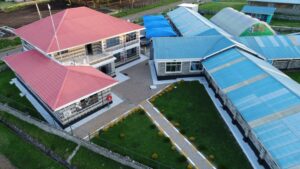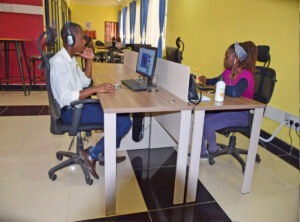Livestock Value Chain Programme NICHE-KEN-271
By Prof Alexander K. Kahi, Programme director
The Capacity Building for Strengthening the Livestock Value Chain (LVC) programme is based on the need for transformed Kenyan livestock value chains (LVCs) from predominantly formal and inefficient to commercial, profitable and competitive. This will allow the agricultural sector to grow and address food security concerns. This process will be supported through training graduates, farmers and entrepreneurs on innovative business techniques, on-farm and out-of-farm value addition, marketing and value chain approaches.
Gap
This project aims to fill a significant capacity gap in the design, development and operation of an agribusiness incubator and centre of excellence that is gender sensitive and meets the needs of the LVC. At institutional level, the livestock sector has been slow in transforming to global competitiveness, has poor alignment between research, education, training, extension, business development, entrepreneurship and has not been gender sensitive.

CoELIB
At human resource level, young graduates and potential entrepreneurs are ill-prepared and ill-equipped for business development. Consequently, most expect to be employed rather than become job creators. For livestock production to be sustainable, it is imperative to improve on the efficiency of the LVC to allow for adoption of more integrated and holistic approaches.
New approach
Adoption of these approaches requires stakeholders that are practically oriented, entrepreneurial and conversant with the different livestock technologies, innovations and management practices (LTIMP). In addition, extension services provided to them should be of professional quality and quantity.

Workspace
This project also aims to provide practical training and extension and outreach services on LTIMP that are labour market oriented, gender sensitive and pay enough attention to business development and entrepreneurship. This project is a logical outcome of an earlier project that built the capacity to deliver competent graduates for enhanced competitiveness in the dairy sector and the experiences will be transferred to the whole livestock sector. Capacity is needed to operate a sustainable incubator and centre of excellence that is profitable.
Beneficiaries in the programme are staff of the Faculty of Agriculture of Egerton University, young graduates from agricultural institutions, innovative entrepreneurs, farmers, input/service providers and traders.
Expectations of the project

Computer lab
At the end of the project Egerton University can manage and operate the Centre of Excellence for Livestock Innovation and Business (CoELIB) with regional scope that is labour market oriented and gender sensitive.
The centre can then manage and operate a successful agribusiness incubator in the livestock value chain (LVC) with an international scope that benefits young graduates and innovative entrepreneurs.



